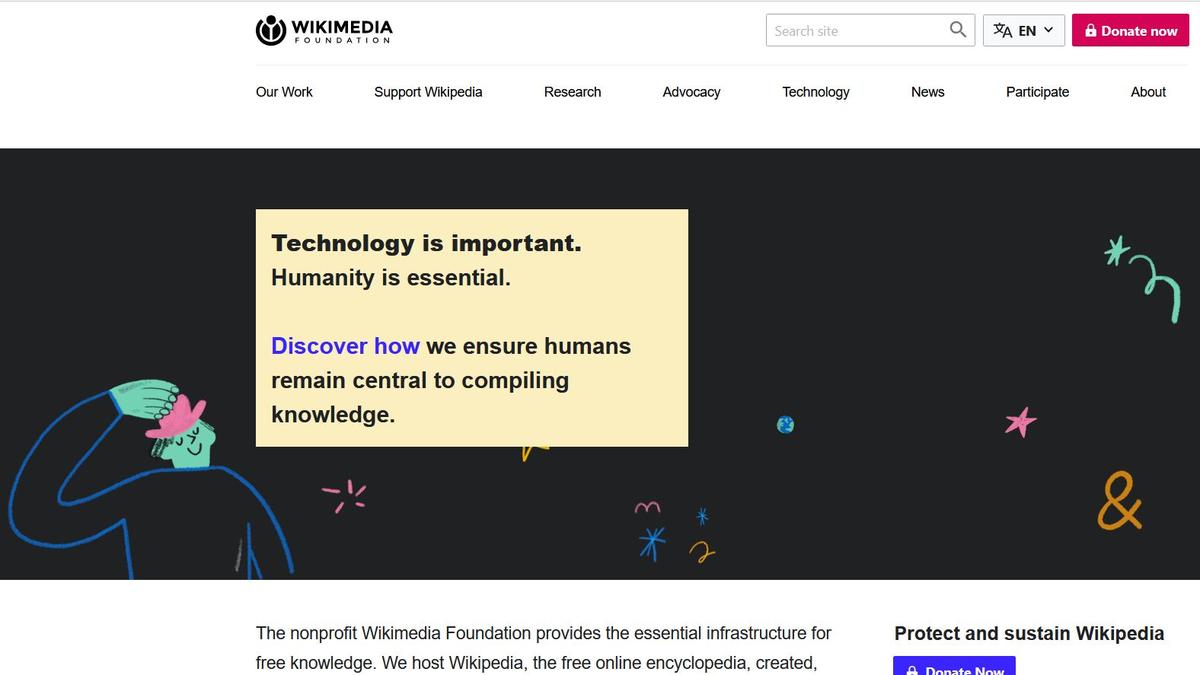The recent legal battle between the Asian News International (ANI) and Wikimedia Foundation highlights the complex interplay between freedom of expression, journalistic ethics, and the potential misuse of online platforms. ANI, a news agency, filed a lawsuit against Wikipedia, alleging that its entry on the platform was defamatory. This article will explore the arguments presented by both sides, examine the concerns raised by legal experts, and analyze the implications of the court’s stance on the freedom of information.
ANI’s Accusations and Demands
ANI claims that the Wikipedia entry, which describes the agency as a propaganda tool for the government and a distributor of fake news, is false and defamatory. It accuses Wikimedia Foundation of misleading the court by stating that it had not had the opportunity to apprise the court of its position. ANI contends that the foundation was fully represented in court when the direction for disclosure of user information was issued and that it did not object to the directive at that time. ANI argues that the Foundation’s refusal to disclose information constitutes a clear violation of a court order.
Justification of ANI’s Claims
ANI’s perspective is based on the belief that the information presented on the Wikipedia entry is damaging to its reputation and that the platform has a responsibility to ensure factual accuracy and accountability. They are seeking user information to potentially identify the individuals responsible for the allegedly defamatory edits and to address what they perceive as an intentional effort to tarnish their reputation.
Wikimedia Foundation’s Response and Defense
The Wikimedia Foundation counters that the entry on ANI is backed by credible sources and reflects the broader public perception of the news agency based on reporting from multiple reliable outlets. It maintains that the platform adheres to a policy of allowing users to contribute and edit information freely, based on the principles of inclusivity and a democratic approach to knowledge building. The foundation emphasizes that Wikipedia serves as a dynamic repository of information, where individuals can collaborate to create and update content, including challenging prevailing narratives.
Justification of Wikimedia Foundation’s Response
The Foundation’s position centers on the protection of free speech and user anonymity. It highlights the importance of open platforms for facilitating the free flow of information, including dissenting viewpoints. They argue that requiring user disclosure could discourage participation, stifle dissent, and ultimately harm the platform’s ability to serve its purpose as a free and open encyclopedia.
Legal Implications and Expert Opinions
The court’s response to this dispute has drawn criticism from legal scholars, who view the potential ban on Wikipedia as an infringement on the right to access information. Constitutional scholar Gautam Bhatia describes the court’s order as an overreach, highlighting the chilling effect it could have on online platforms and user contributions. The threat of a ban raises serious concerns about the potential censorship of online content and the implications for a democratic society.
Implications of the Court’s Order
The court’s order, if implemented, could set a dangerous precedent, potentially encouraging other entities to demand the identification and silencing of individuals holding dissenting or critical views. It raises concerns about the potential misuse of the legal system to suppress information and limit the right to free speech.
Navigating the Balance Between Accuracy, Transparency, and Freedom of Expression
This case highlights the complexities of navigating the balance between ensuring accuracy and accountability in online platforms, protecting user anonymity and freedom of expression, and addressing potentially defamatory content. Striking a balance between these competing principles is crucial for fostering healthy online communities and protecting democratic values.
Balancing Competing Interests
Effective solutions require a collaborative approach involving platforms, governments, and the legal system. This involves implementing robust fact-checking mechanisms, promoting ethical guidelines for content creation, and establishing clear policies regarding user accountability and responsibility. Transparency regarding platform algorithms, moderation policies, and data usage is also essential for fostering trust and encouraging responsible behavior.
Take Away Points
- The dispute between ANI and the Wikimedia Foundation underscores the tension between the pursuit of journalistic accuracy, freedom of speech, and user anonymity in online platforms.
- The court’s response to ANI’s demands has raised significant concerns about the potential for censorship and the chilling effect it could have on user contributions and free expression.
- A nuanced and collaborative approach is needed to balance these competing principles, ensuring accurate information while fostering a healthy and open online environment that respects individual rights.
- Clear policies regarding content moderation, user responsibility, and the protection of user data are crucial for fostering responsible behavior and trust in online platforms.
- This case serves as a reminder of the vital role of independent platforms in promoting a diverse range of perspectives and fostering a robust public discourse.




